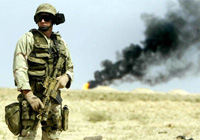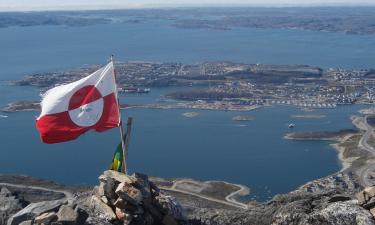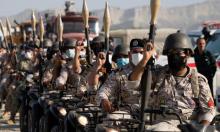USA's enforced democracy plan turns Middle East into one big gaping wound
George W. Bush unveiled his plan to spread democracy in the Middle East – from Pakistan to Morocco – in 2004. The United States decided to implement the plan despite the criticism from many other Western countries. The propaganda of democracy resulted in blood shed in Palestine, Iraq, Afghanistan and Pakistan. Bush did not achieve his goal; Barack Obama has not suggested anything new yet. If the US administration does not change its politics, both the Middle East and the United States will have to face a serious danger.

Hardly had Barack Obama come to power, he said that stabilizing the situation in the Middle East was one of the first priorities of his team. When George W. Bush presented his plan to enforce democracy in the region, then-President of France Jacques Chirac stated that it was up for the countries of the Middle East to decide if they needed “missionaries of democracy.” The majority of other G8 leaders shared Chirac’s opinion on the matter.
Bush’s plan stipulated the interference into internal affairs of the region’s states. Those who supported Bush’s initiative claim that his plan was justifiable because the situation in the Middle East posed a serious danger to the world.
As a matter of fact, such dangers should be discussed at the UN Security Council. It is the UN Security Council that must determine the measures to neutralize the danger. However, all countries of the Middle East were supposed to accept the Western system of democracy in accordance with Bush’s plan.
Russia’s former Prime Minister Yevgeny Primakov stated that the US plan of enforcing democracy in other countries could be compared to the Trotskyists propagating the export of revolution during the 1920s. “They were not confused about the fact that the countries, which they selected, had no vestiges of the revolutionary situation. This is why their export failed,” Mr. Primakov said.
Europe was the center of the US-led foreign politics during the 20th century. The 9/11 terrorist attacks changed the priorities, and the USA became entirely concentrated on the territory from Pakistan to Northern Africa. The region’s immense crude resources and Israel ’s actions in the region became the central battlefield with those who stood up against the USA ’s global interests. As a result, many countries of the Middle East found themselves in chaos because of George W. Bush’s plan.
Experts say that the number of casualties in Iraq exceeded the number of victims of genocide in Rwanda during the 1990s. US troops and their allies suffer serious loses in Afghanistan. A civil war gripped Lebanon. Palestine is in the middle of the humanitarian catastrophe because of Israel’s repressions. The situation in Pakistan is at the peak of its tension, not to mention the growing confrontation between Syria and Israel.
The USA was approaching all those conflicts as the struggle between good and evil. In the Middle East, the conflicts led to the growing number of refugees, as well as illegal arms and drug deals. The instability and the ongoing military standoff have exhausted the states of the region. For example, there is no system of joint governmental authorities in Afghanistan. The country suffers from the humanitarian crisis; the production of drugs has increased 44 times within 7.5 years.
The blockade of Iraq, which continued for nearly 13 years before Saddam Hussein was toppled in 2003, seriously undermined the nation’s economy. The interethnic strife in the country became much more intense after the arrival of the US troops in the country. Saudi Arabia, Iran, Turkey and Syria became involved (either expressly or by implication) in the conflicts in Iraq following their own geopolitical interests.
Strange as it may seem, but it was the USA that strengthened the influence of the “axis of evil” in Afghanistan, Iraq, Somalia and Palestine. The Middle East that the world has today is not the Middle East that the United States thought the world would have.
America has the new president now, but the politics in the region does not change for the better.
Vladimir Anokhin
Subscribe to Pravda.Ru Telegram channel, Facebook, RSS!




